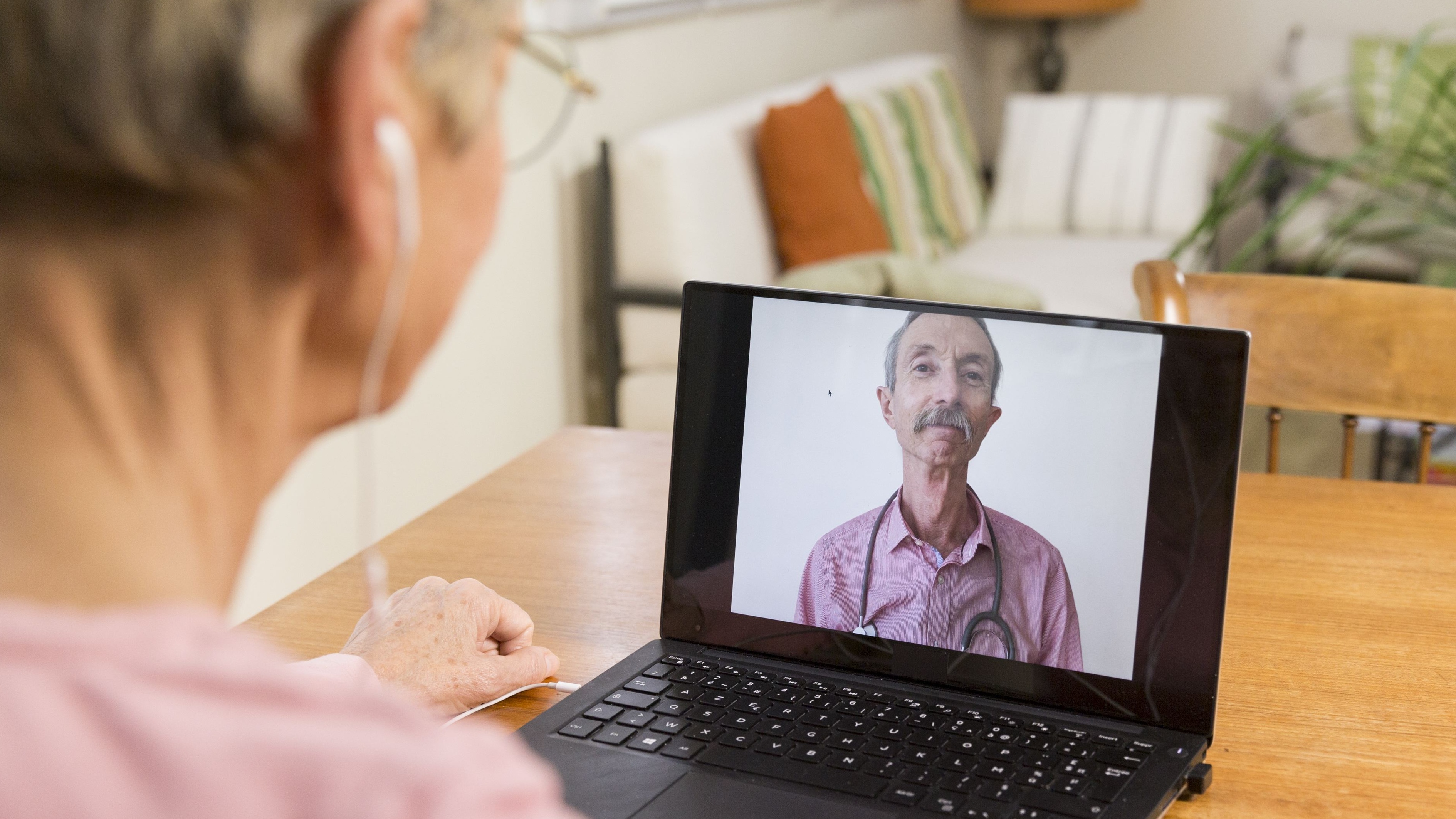‘Total triage’: what new NHS guidance means for patients
Critics say remote consultations must not become the ‘default’

A free daily email with the biggest news stories of the day – and the best features from TheWeek.com
You are now subscribed
Your newsletter sign-up was successful
Doctors have been told to discourage patients from seeking face-to-face appointments and instead promote the use of virtual consultations in new NHS guidelines.
GPs are to implement a system of “total triage”, which means anyone wishing to see their doctor must first have a consultation online or by telephone, reports The Telegraph.
The Royal College of GPs has expressed reservations about the plans, with its chair, Professor Martin Marshall, saying the college does not want to see “general practice become a totally, or even mostly, remote service” after the pandemic, reports GPOnline.
The Week
Escape your echo chamber. Get the facts behind the news, plus analysis from multiple perspectives.

Sign up for The Week's Free Newsletters
From our morning news briefing to a weekly Good News Newsletter, get the best of The Week delivered directly to your inbox.
From our morning news briefing to a weekly Good News Newsletter, get the best of The Week delivered directly to your inbox.
The new plans, formalised into NHS operational planning advice last month, says anyone deemed by a doctor to require a face-to-face consultation should receive one, but “about a third of all patients’ requests can be dealt with using online messaging”, reports The Telegraph.
Before the pandemic, 70% of appointments were face-to-face and the remaining 30% were via phone, video or online, but during the crisis, these figures have “switched” with just 30% of appointments being conducted face-to-face while 70% were remote, reports the Daily Mail.
Doctors fear that this temporary solution to the coronavirus crisis, introduced to cut the spread of infection, will now become permanent, with a report from the Royal College of GPs warning that while remote consultations will remain a “major element” of general practice, it must not become the “default” option.
The report pointed to the benefits of remote care, such as offering patients flexibility, but said online or phone consultations were “challenging” for GPs who were trying to treat patients with “complex health needs”.
A free daily email with the biggest news stories of the day – and the best features from TheWeek.com
It added that remote consultations meant “softer” health cues could also be missed.
It said: “In some cases, non-verbal or ‘soft’ cues such as signs of anxiety, self-harm, or smelling alcohol on a patient’s breath, may be more easily missed remotely, or there may be concerns about a patient’s safeguarding, capacity or confidentiality.”
Some 63% of GPs in a poll said delivering all or mostly remote consultations reduced their job satisfaction and 61% said remote consultations are making the role more transactional, reports the Daily Mail.
-
 At least 8 dead in California’s deadliest avalanche
At least 8 dead in California’s deadliest avalancheSpeed Read The avalanche near Lake Tahoe was the deadliest in modern California history and the worst in the US since 1981
-
 Political cartoons for February 19
Political cartoons for February 19Cartoons Thursday’s political cartoons include a suspicious package, a piece of the cake, and more
-
 The Gallivant: style and charm steps from Camber Sands
The Gallivant: style and charm steps from Camber SandsThe Week Recommends Nestled behind the dunes, this luxury hotel is a great place to hunker down and get cosy
-
 A real head scratcher: how scabies returned to the UK
A real head scratcher: how scabies returned to the UKThe Explainer The ‘Victorian-era’ condition is on the rise in the UK, and experts aren’t sure why
-
 How dangerous is the ‘K’ strain super-flu?
How dangerous is the ‘K’ strain super-flu?The Explainer Surge in cases of new variant H3N2 flu in UK and around the world
-
 The ‘menopause gold rush’
The ‘menopause gold rush’Under the Radar Women vulnerable to misinformation and marketing of ‘unregulated’ products
-
 How the care industry came to rely on migrant workers
How the care industry came to rely on migrant workersThe Explainer Government crackdown on recruiting workers abroad risks deepening care sector crisis, industry leaders warn
-
 Could medics' misgivings spell the end of the assisted dying bill?
Could medics' misgivings spell the end of the assisted dying bill?Today's Big Question The Royal College of Psychiatrists has identified 'serious concerns' with the landmark bill – and MPs are taking notice
-
 Washwood Heath: Birmingham's pioneering neighbourhood health service
Washwood Heath: Birmingham's pioneering neighbourhood health serviceIn the Spotlight NHS England chair says there is a 'really good argument this is the model for the future'
-
 The UK's first legal drug consumption room
The UK's first legal drug consumption roomThe Explainer 'Potentially transformative moment in UK drugs policy' as The Thistle opens in Glasgow
-
 How can the UK solve the adult social care crisis?
How can the UK solve the adult social care crisis?Today's Big Question New commission announced to turn our buckling care sector around: yet more delay or finally a way forward?